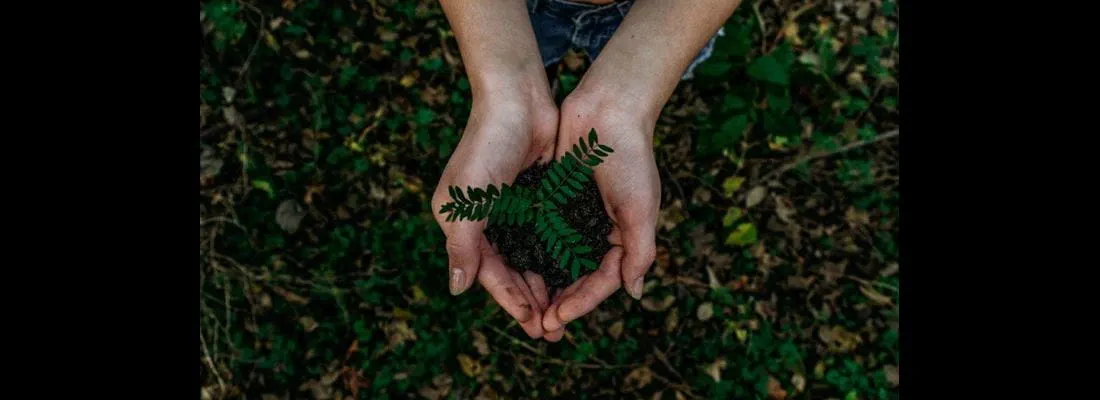At Vileda Professional, Paul Harleman is responsible for the development of cleaning concepts, designing trainings, and sharing knowledge by organising hygiene debates. He was also involved in the Hygiene Magazine that Vileda Professional published last year. And if anyone has questions about sustainability, Paul is very much involved .
The definition of sustainability
When it comes to sustainability, there are many different ways to define this. To Paul, sustainability at its core is about avoiding waste. “When it comes to sustainability, I think of not wasting. This starts with prevention as one of the most important steps. This can be applied in all kinds of ways. In our personal lives for instance, we do this with our houses: we use insulation to prevent wasting energy. And many people are buying more expensive high quality products, because when you have to buy new products less often it saves the use of resources.”
This prevention of waste can also be related to the circularity of materials, Paul continues: “If we extract gas from the earth and we burn it, it will be gone. But if we generate solar energy, the sun will come up again tomorrow. So with circularity you also produce none or less waste. In the cleaning industry we should also focus on preventing waste and the circularity of materials.”
Three tips for cleaning companies to become sustainable
Paul shares three tips for cleaning companies that don’t know where to start with incorporating sustainability.
1: Focus on employees
The first tip Paul shares is to focus on employees. This tip can be broken into two parts, beginning with treating employees sustainable. Paul explains: “The translation of sustainability into the prevention of waste can also be applied to employees. Companies should treat their people sustainable. People must be able to work under good conditions, otherwise we are actually wasting human labour, human energy and good human mood.”
Behaviour and habits of employees is the other thing to focus on if it concerns people. To go into more detail Paul explains the background of this tip first.
“Cleaners need to work according to the protocols for cleaning and disinfection. However , often you see that in time some people apply their own “rules”. Because it’s their habit or a misunderstanding. Good cleaning and disinfection starts with managers making them aware of their behaviour and habits. They must guide and change this behaviour with patience, as it takes a long time for behaviour to be adjusted . Bad and inconsistent cleaning quality is not sustainable and depends a lot on human behaviour.
2: Don’t make decisions based on a “classic” payback period
When incorporating sustainability into a company, the focus should not be on the payback period only, according to Paul. “Don’t think “I won’t earn it back within three years so I don’t do the investment. Related to sustainability, that is short term thinking. This way of thinking is very common in our private lives as well. For example, someone may not purchase solar panels because the payback period is 6 to 7 years. But the same person buys a kitchen, and no one wonders when this investment is earned back. To me that is a bit strange. You may not earn back sustainable solutions in the short term, but if you don’t invest you are going to be in big trouble in the long run.”
Paul also acknowledges that is difficult within the cleaning industry. “We are very cost-driven in our industry. But bare in mind that it actually starts with the client. If clients are not willing to pay a bit more, manufacturers will keep offering their products as cheap as possible. So in order to be sustainable, it starts with clients being willing to pay more for sustainable solutions. It is like a chain reaction.”
3: Just start
The third, but most important tip Paul has is: just start. “You notice very well in the healthcare sector that they are aware of the Green Deal. More and more initiatives are being developed to make healthcare more sustainable. At some point, I think if companies don’t want to be sustainable, they will be forced. Because the government will start forcing them, and their clients will start forcing them. If governments think it’s going too slow, it will become the law.”
Many companies have already started. “Prevention of waste has become mainstream in recent years within healthcare and healthcare cleaning. I think we can also say that it is now mainstream for manufacturers to make their products from recycled materials as much as possible, and to ensure that their products are recyclable.”
Technological innovations that increase sustainability
In addition, companies can also invest in technology to help them become more sustainable. Some of the technological innovations that Paul is seeing are cleaning automation and software for data-driven cleaning. “A trend that has continued for years is cleaning automation. Particularly machine manufacturers are making developments in this field. They focus more and more on robotisation and digitisation. What you also see a lot is the development of software and solutions for cleaning management. With data you can see, for example, that a room does not have to be cleaned yet.”There are many things companies can do to become more sustainable. What is important is that they just start. Paul concludes: “Just start, before you are surprised by the government forcing you.”






